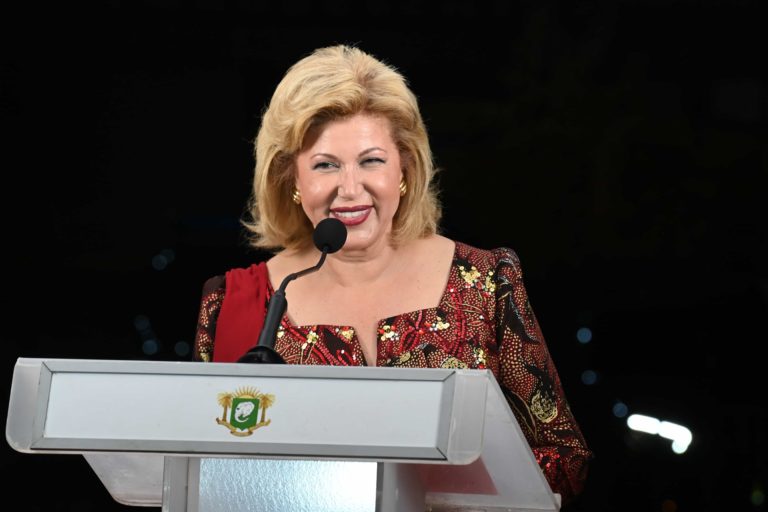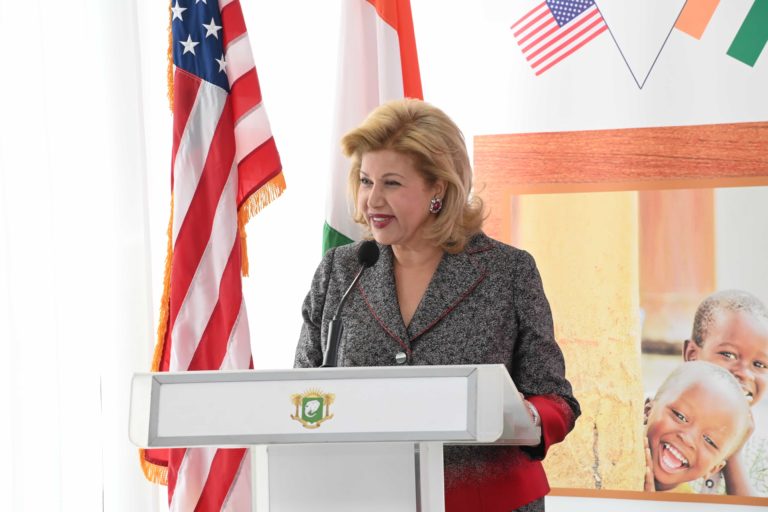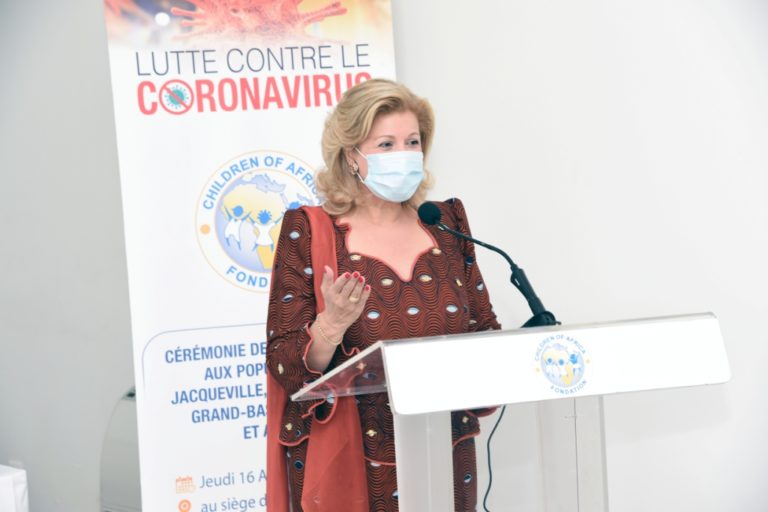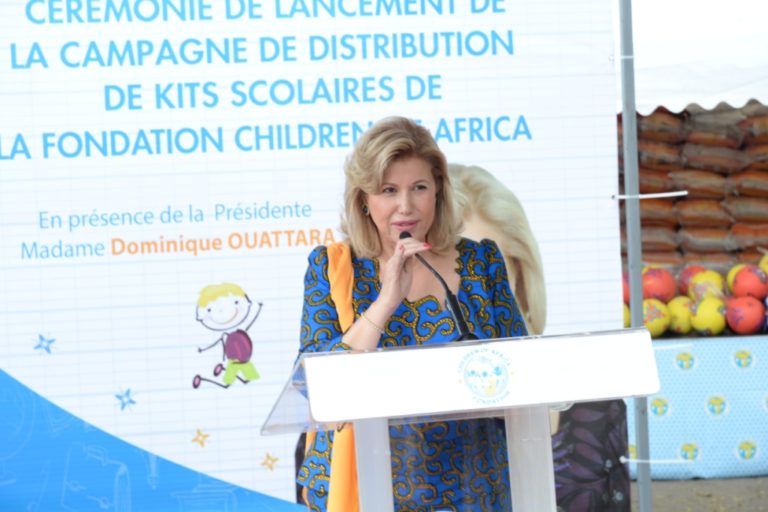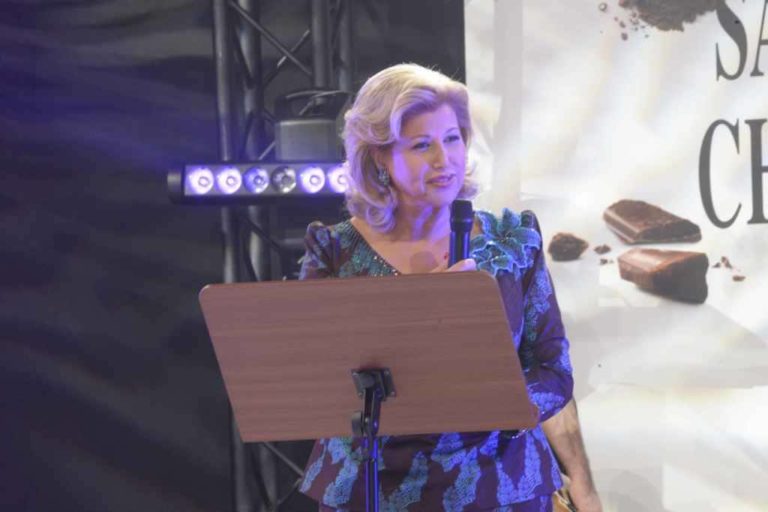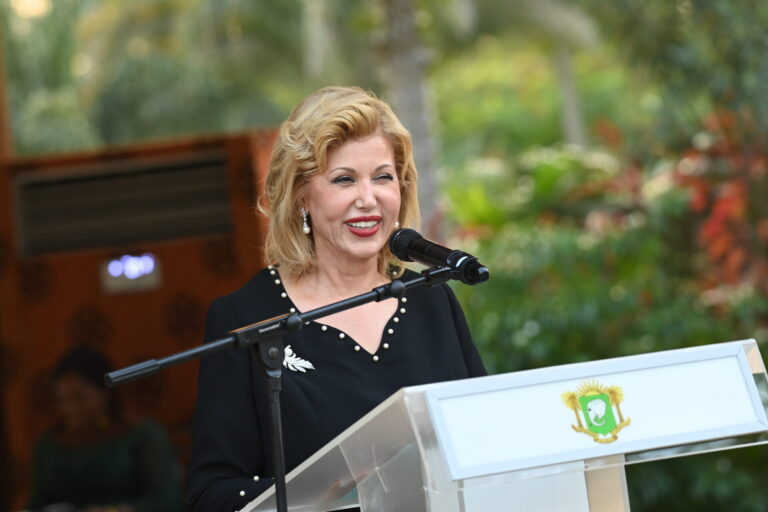
Discours
Speeches
Meeting of the World Cocoa Foundation
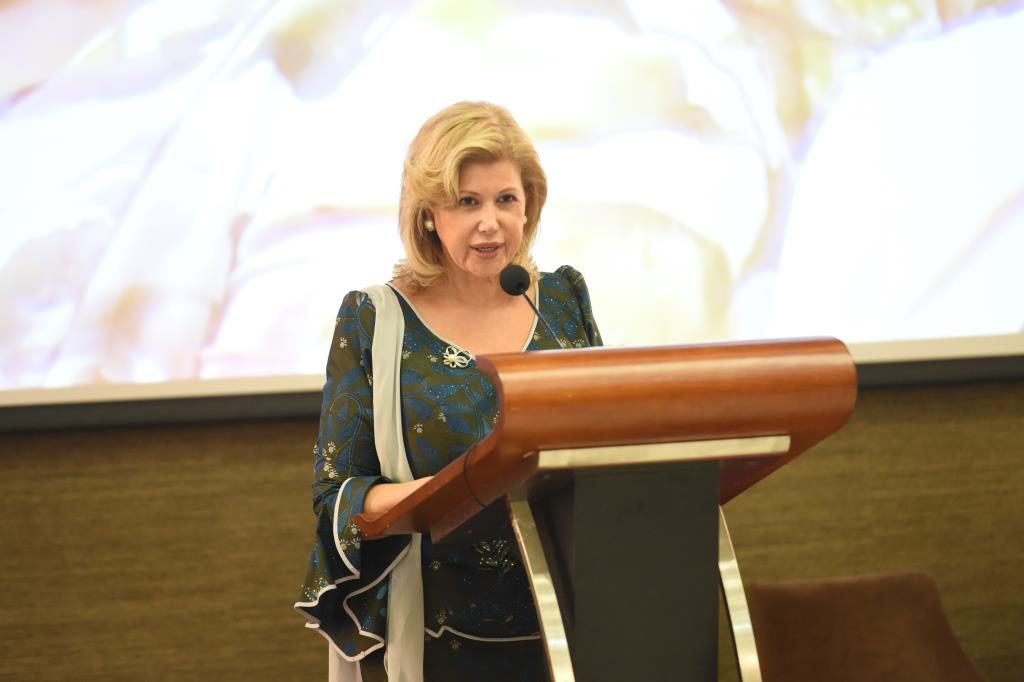
Ladies and Gentlemen,
I am very happy to be with you this morning on the occasion of the 2016 edition of the partnership meeting of the World Cocoa Foundation, held in Abidjan for the first time.
I would first of all like to greet Mr. Barry PARKIN, Chairman of the Board of the World Cocoa Foundation and all its members, who organized this important event in our country.
I also extend my greetings to Mr. Richard Scobey, the new Executive President of the Foundation, Mr. Tim MC COY and Mr. Nick WEATHERILL whom I meet again with much pleasure in Abidjan.
I would also like to warmly greet, Sir Lambert Kouassi Konan, Chairman of the Board and Mrs. TOURE Massandjé-LITSE, Managing Director of the Coffee and Cocoa Board and co-organizers of the event, whose tireless efforts greatly contribute to the improvement of the living conditions of farmers.
I would finally like to greet and congratulate all industrial cocoa, the organizations of the UN system, National and International NGOs, as well as producers’ cooperatives, for their efforts in the fight against child labor. And thank you also to all personalities for their presence with us this morning, without forgetting our great and beautiful champion Murielle AHOURE, Ambassador of the Coffee and Cocoa Council.
Ladies and Gentlemen,
The theme of the 2016 edition of the World Cocoa Foundation Partnership Meeting: “People, Planet and Cocoa Economy in a Changing World” is crucial.
Indeed, it gives us the opportunity to understand the challenges of sustainable development of our cocoa economy, one of which is the elimination of the worst forms of child labor. By devoting a special session to this issue, the World Cocoa Foundation provides an opportunity for all stakeholders to discuss achievements and focus our efforts to achieve our common goals.
Ladies and Gentlemen,
As you all know, several years ago, the production chain and the cocoa supply, faces the thorny issue of child labor.
Also, in order to eliminate this scourge, a partnership agreement was signed between our country, representatives of the cocoa industry, and the US Government, under the leadership of Senator Harkin and Congressman Engel.
This agreement, better known as the ‘Harkin-Engel Protocol’ is the institutional framework of reference of the industry’s efforts in the fight against the worst forms of child labor. It is in this context that several companies have developed and implemented important projects including:
– The “Vision for Change” project by March
– the “Cocoa Plan Schools ” project by Nestlé
– The “QPP” project by Barry Calbeault
– The “Farms, Schools, Farmers” of Barry Cargill,
and many development projects of several other companies. Today, the World Cocoa Foundation member companies have realized the need to pool their efforts in implementing the Cocoa Action Strategy.
The new plan, which allows manufacturers to support the sustainability of cocoa production and improve the livelihoods of cocoa farmers, aims to fight against the worst forms of child labor, by establishing basic social infrastructure, including the construction of classroom and health centers.
At this stage of my remarks, I would like to salute and congratulate all the partner companies for having responded to my call inviting them to build many schools, and for all efforts to improve the living conditions of our producers.
Dear Partners,
You brought your support to the implementation of the law on compulsory education, and I thank you sincerely. I remain convinced that it is in giving every child the opportunity to go to school, we will succeed in reducing vulnerability and preserve them from trafficking and exploitation.
Ladies and Gentlemen,
Regarding Côte d’Ivoire, the world’s largest cocoa producer, we are engaged in taking measures to combat the phenomenon. With our two committees, the National Oversight Committee and the Interministerial Committee, we have developed two action plans which helped coordinate and monitor all actions for the elimination of child trafficking and exploitation.
Indeed, in the context of the implementation of these plans, we have conducted extensive awareness campaigns among producers, and were able to pass legislation to strengthen the legal framework.
We also conducted police operations to apprehend traffickers and an extensive media campaign to raise awareness. Furthermore, we have organized training seminars for the different actors in the chain, and signed bilateral agreements with several neighboring countries to prevent cross-border trafficking. Ladies and Gentlemen, Continuing our efforts, we have taken new actions this year to encourage even more significant progress.
The first action taken, was to carry out a working visit at the ILO headquarters in Geneva. Indeed, we found that in surveys to measure child labor, those of them who help their parents after school in fields or domestic work, not even one hour during the week are considered “working children”, even if the activity performed by the child does not affect his health, his safety and his school attendance. It is important to avoid considering that children accompanying their parents after school, consistently as “child laborers”. Such categorization is difficult to accept by parents who do not understand that their children cannot help after school to learn to love their job, as is done around the world.
Thus, under exchange with Guy RYDER, Director General of the ILO, we reached points of agreement of which the most important is to develop with the experts, the list of light work permitted for children from 13 to 15 years. A workshop is planned for this purpose, from 8 to 10 November, with the ILO experts.
In this context, I sent a letter to Mr. Thomas PEREZ, Minister of Labor of the United States, for consideration of the findings of our mission in Geneva in future surveys. Indeed, learning from the contradictions raised by the methodology of Tulane University for the 2013-2014 survey, we hope that the next survey to be conducted by the University of Chicago, will adopt criteria duly approved by the countries implied.
Elsewhere, in the context of strengthening sub-regional cooperation, I signed a joint declaration of commitment with my co-sister, Mrs. Lordina Dramani Mahama, First Lady of Ghana. This agreement aims to carry out concerted and joint actions for more effective results in our two countries. Finally I bring my support to the ILO, as part of the global alliance against child labor. As such, I sponsored the sub regional meeting held in Abidjan on 8 and 9 September 2016. In the same context, I participated in the panel for the global launch of this alliance in New York, on September 21.
Ladies and Gentlemen,
Regarding our outlook, we have undertaken, through Children Of Africa Foundation, the construction of 3 reception centers in Soubré, Bouaké and Korhogo, to improve the child care for those removed from trafficking and the worst forms child labor. This accommodation device will strengthen the assistance of supply and protection for children in emergency situations.
Under international cooperation, we plan to organize in March 2017 in Abidjan, a Summit of the First Ladies of the West African Sub-region on cross-border trafficking in children, to raise their involvement in this fight. In this same line, we will organize in May 2017 in Côte d’Ivoire, the annual meeting of the Coordination Group of Actions in the fight against child labor in cocoa production. I hope many of you will make the trip to participate in these important meetings.
Ladies and Gentlemen,
Dear Partners,
I cannot conclude my remarks without reiterating my thanks to the Board of the World COCOA Foundation, and to all the partners present for their continued commitment with Côte d’Ivoire in the fight against trafficking and the worst forms of child labor. For I am confident enough that thanks to everyone’s efforts, we will succeed in eliminating child labor.
Thank you.
